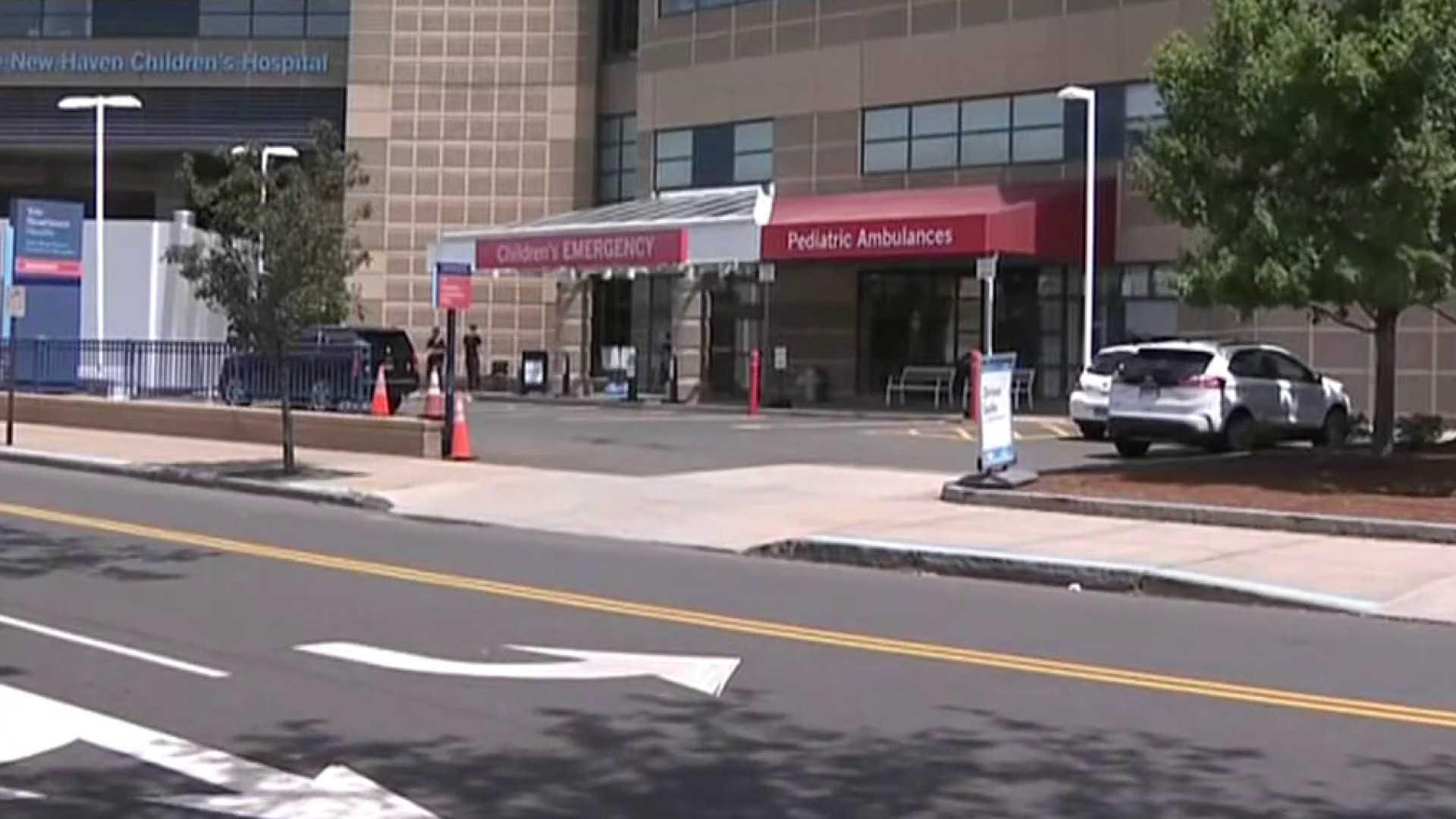Getting out of long-term debt and still paying for state employee retirement benefits has been a problem in Connecticut for decades.
There's a plan, though, on the table now that lawmakers from both parties are applauding, and many think this may be the best chance yet at getting it done.
NBC Connecticut's Mike Hydeck spoke with State Comptroller Sean Scanlon, who led a coalition of groups to try and figure it out.
Mike Hydeck: So this was a big project. A lot of people were scared of tackling it until now. First up, let's kind of set the stage. Who was at the table with you as you try to figure out this formula?
Get Connecticut local news, weather forecasts and entertainment stories to your inbox. Sign up for NBC Connecticut newsletters.
Sean Scanlon: Well, here's the problem, right? 107 of 169 municipalities in our state are part of this system called CMERS. It's a state pension-run system that the municipalities have. For the last five years, the contribution rates for the employees and the employers have risen by 75%. So big problem, right? We put together a coalition of labor, management, Democrats and Republicans, sat around a table in my office for six weeks and got to an agreement that is going to save tens of millions of dollars for these towns and cities over the course of next few years.
Mike Hydeck: And some of them said, you know, there was one that I think it was the man from Windsor, the first selectman, he's like, 'this is a big deal.' Like they were, you know, ebullient for the whole thing, right? So even though the union supports it, as you sit around the table for six weeks, are you going to get buy-in from the rank and file too because it has to go through?
Sean Scanlon: I think so. Listen, I was the son of a police officer, my grandfather was a firefighter, I understand the importance of pensions, I understand the importance of working in public service and having that retirement there for you at the end of the day. And it is in this case, we made the system stronger, we made the system healthier and that will help the employees and the towns going forward because a healthy pension fund is something that helps the towns and the people that are serving those towns right now, and then when they retire.
Face the Facts
Face the Facts with NBC Connecticut goes beyond the headlines, asking newsmakers the tough questions, giving an in-depth analysis of the big stories.
Mike Hydeck: In your initial news conference, when you announced this deal and the plan moving forward, you said we're not taking anybody's benefits away, right? So what does that mean?
Sean Scanlon: What it means is that we're not taking a benefit away that they have. We're changing the COLA, which is a big problem right now in the fund, just because of some changes that happened many years ago, that are making the COLA harder and harder for the towns to be able to afford. We're not taking the COLA away from the employee, we're just changing the way the COLA is structured. That is the only thing that right now somebody would really notice. The other things are proactive things that we're offering people as a way to save money, like allowing them to work longer and incentivizing them to do that. That's not a forced choice. That's now taking away something. It's just an option that will help us save money. And that's a good thing.
Mike Hydeck: So COLA is Cost of Living Adjustment. There was a floor, right? Years ago, it was a minimum of a 2.5% increase per year. How's it different now?
Sean Scanlon: This is very wonky in the weeds stuff.
Mike Hydeck: I didn't want to go too far in the weeds, but I wanted to give a little explanation.
Sean Scanlon: The biggest thing is actually changing when they get the COLA. So from now on, starting on July 1, 2025, somebody who retires does not get the COLA right away. They have to wait a year to get the COLA. That one year of savings brings in a lot of money. And there are some really wonky technical changes that are made about removing a ceiling and a floor, changing those things up a little bit. But basically at the end of the day, what this is about is making sure that that fund is safe and strong and secure for people going forward. And that CMERS is an attractive proposition for other towns that are not in it right now and that want to think about saving retirement. Now CMERS, for the first time in decades, is on better financial footing.
Mike Hydeck: Now remind people, CMERS, the acronym, you're talking about acronyms. Connecticut?
Sean Scanlon: Yes, Municipal Employees Retirement System.
Mike Hydeck: Got it. Just wanted to go there quick. All right, so you're proposing to refinance the long-term debt from 17 to 25 years. Is that in a way kicking the can down the road for further legislators?
Sean Scanlon: We did it for both the state employee funds that we oversee in Connecticut and it's not kicking the can down the road. It's just spreading out the pain. Because decades of Democrats and Republicans messed this up and weren't paying down this debt to begin with, we now are in a situation that if we didn't do that, the bubble would be bursting on us and towns that are already maxed out and don't have the ability to raise any more property taxes from the residents. We're having to make these terrible decisions. We had some communities that were saying 'we're gonna hire or fire police officers or firefighters or teachers, depending on what you do.' I don't think it's good for any Connecticut community in this state to be firing police officers, firefighters or teachers. And if I can help them not do that by spreading out those payments a little bit, we're talking about eight years, not 80 years. They messed us up by not paying anything for 80 years. We're making this better within eight years.
Mike Hydeck: And we know the need for police officers and teachers right now and firefighters across the board, across the state. So let's talk about the support you have. You've been applauded by Representative Candelora, the governor, both parties. Is there a way to make the fund even stronger and more solvent moving forward, too? This is a good first step, things are moving in the right direction. What do you foresee down the pike?
Sean Scanlon: Well, to your point, it's the first step, right. And I'm somebody who believes that the old tired broken way of doing government just doesn't work. People are afraid to take on these challenges. They said to me that you'd never get this done. We got it done in six weeks. And the reason for that is because we got everyone around the table, Democrat, Republican, we rolled our sleeves up, we left politics at the door, and we solved something that hasn't been solved in decades. This is a model for what we can do going forward in government, on this pension, on everything. And we're going to continue to progress. That group is going to continue meeting for the next six months. And then next year, in the next legislative session, the goal is, we will bring additional reforms to this fund. But I think at the end of the day, Mike, it's a template for what we need to be doing in government, taking on tough problems, not being afraid to tackle them. And frankly, just putting politics aside and doing what's right for the people of Connecticut.
Mike Hydeck: So getting this across the finish line, I'm assuming, has at least two steps. So that means the legislature has to sign off on it. And the governor has to sign off on it. Does labor have to sign off on it, too?
Sean Scanlon: Nope. Just the just a statutory change. So the legislature passes the bill and the governor signs it and then we'll be able to enact this change.
Mike Hydeck: How do you feel about this happening by the end of the session?
Sean Scanlon: I feel good about it. You know, the governor was at the press conference and the legislative leaders from all four caucuses, meaning the head Democrats, head Republicans. They were all there. That's a rare thing in politics these days. And I think the fact that they were there and the governor was there shows that people realize this is an unique moment. We've got to get this done. We can save 107 of 169 towns money, and that means that the taxpayers in those communities will save money and not pay high property tax.



